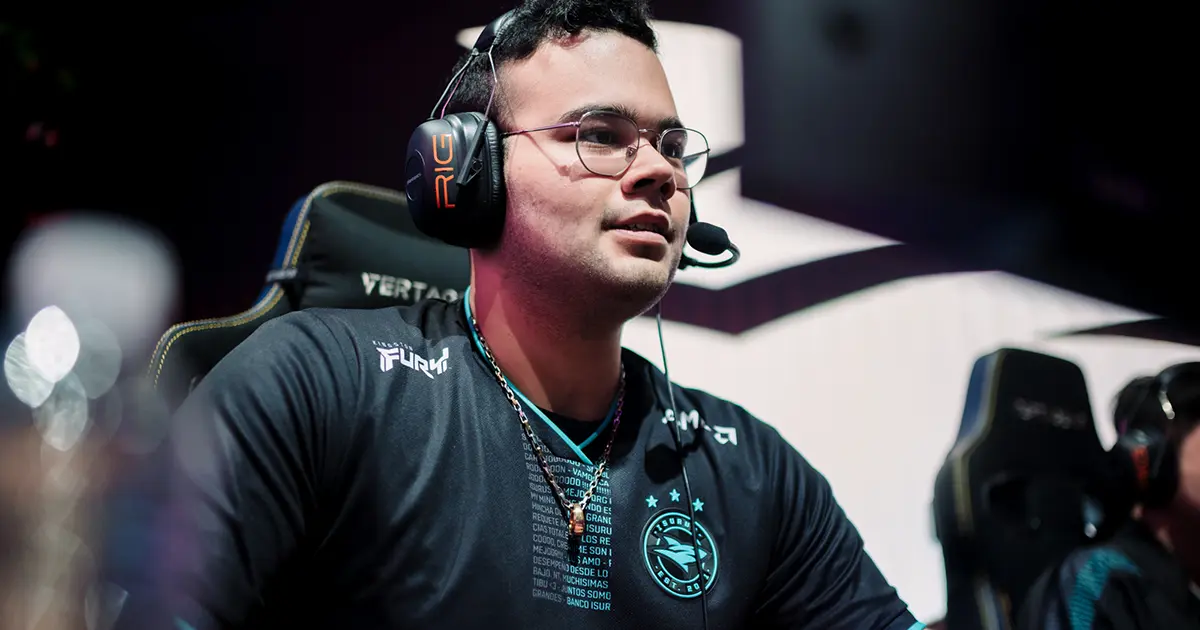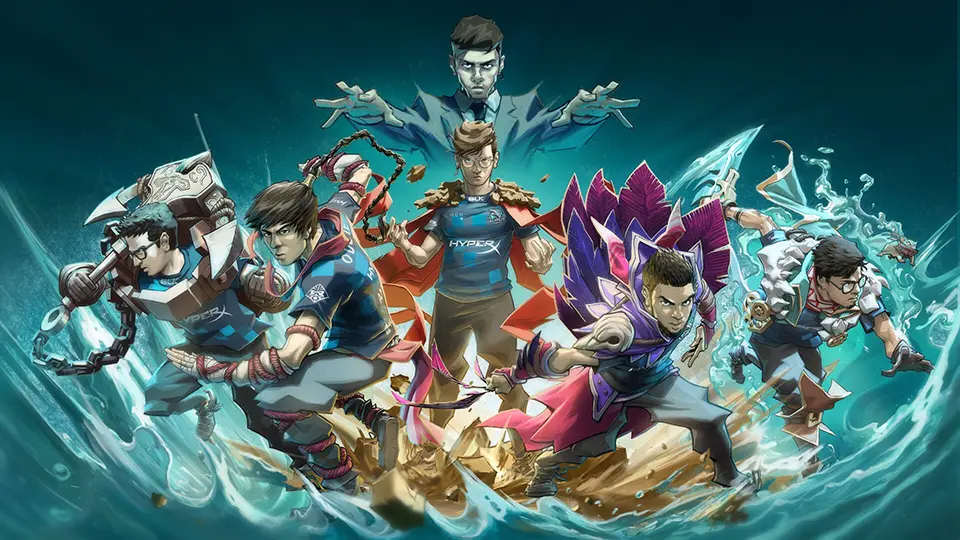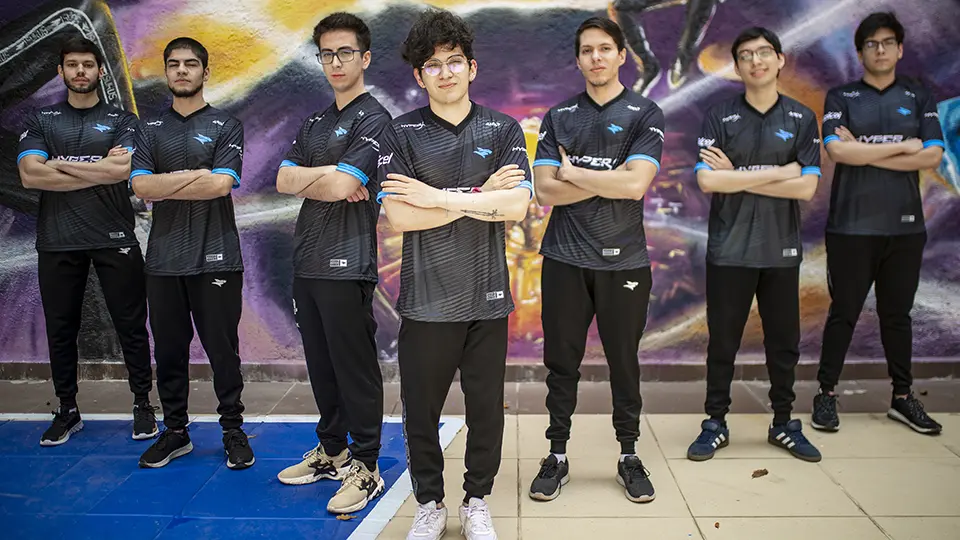The esports industry is a global phenomenon that merges competitive gaming, digital content creation, and entertainment. However, behind the high-energy tournaments and engaging live streams, teams must navigate a complex legal landscape, especially when it comes to copyright protection. From securing broadcasting rights to protecting original content like music, comics, and branding, leading esports organizations must ensure their intellectual property remains safeguarded.

One such leader is Isurus, one of Latin America's most successful esports teams and entertainment companies. Since its inception in 2011, Isurus has not only pioneered the esports movement in the region but has also established a robust framework to protect its copyrights. This includes their own creative productions as well as partnerships with brands and digital platforms.
The Origins of Isurus: From Passion to a Business Empire
Isurus started with a dream and a deep passion for competitive gaming. It was founded by Facundo "kALA" Calabró, a former professional StarCraft II player, and Juan Cyterszpiler, a seasoned lawyer expert in sports law. The organization was built on the idea of bringing Korean-style esports professionalism to Latin America. What began as a small team competing in tournaments soon evolved into a full-fledged entertainment business that offers branding, marketing, and content production services to global companies looking to enter the gaming industry.

Esports, unlike traditional sports, is heavily reliant on digital content. From live broadcasts of competitions to behind-the-scenes documentaries, promotional videos, and exclusive online events, digital media is at the core of its operations. As Isurus grew, the organization quickly realized the need for a strong copyright strategy to protect the immense amount of content it was producing.
Protecting Digital Assets in Esports
With a business model centered on content creation, branding, and audience engagement, Isurus employs a multi-layered copyright strategy to ensure that its creative assets are protected across all platforms. Their approach includes key measures to safeguard their rights while fostering collaboration with their partners.
Esports Licensing Agreement on Copyright
Isurus ensures that every professional who works with them, whether players, streamers, content creators, or brand partners, signs detailed contracts with clear copyright clauses. These agreements define ownership of content, whether it is a video, music track, or promotional material, and establish the scope of rights granted. This provides Isurus with control over how content is used and distributed. The contracts also outline usage rights for sponsors and partners to prevent unauthorized monetization. Additionally, they require compliance with platform rules so that streamers and influencers understand their responsibilities regarding copyrighted material.

Contracts are the foundation of copyright protection for Isurus. According to Juan Cyterszpiler, one of the organization's legal and business leaders, ensuring legal clarity prevents conflicts and strengthens professional relationships.
For us, intellectual property is what governs this sector. Few understand its importance, but without it, there are no clear rules or sustainable growth. That is why we take the time to design specific contracts that protect the rights and guarantees of both parties.
Juan Cyterszpiler
Tackling Copyright Infringement with Content ID Systems
Since esports relies heavily on digital platforms such as Twitch, YouTube, and social media, Isurus makes full use of automated tools provided by these services to combat copyright infringement. Content ID systems detect unauthorized use of copyrighted material in videos and streams, while DMCA takedown processes allow them to remove unlicensed content quickly. Platform-based monitoring tools flag potential violations and alert Isurus' legal team, making it easier to maintain control over their content.
These tools have become essential for copyright protection in esports. By working closely with Twitch and YouTube, the organization ensures that it can take immediate action when someone misuses its copyrighted material.
Community Vigilance: Fans as Copyright Protectors

One of Isurus' most unique and effective copyright protection methods is the active participation of its community. Fans are deeply engaged in protecting the team’s content and branding, often reporting unauthorized streams, fake merchandise, and copied content before the organization even notices.
Cyterszpiler describes the community as their first line of defense against copyright infringement. Their loyalty and vigilance add an additional layer of protection, helping to ensure that only official content is recognized and distributed. This relationship between the brand and its fans makes copyright enforcement not just a legal process but a collective effort.
More than Gaming: Esport Spin-Offs
Beyond gaming, Isurus has expanded its intellectual property portfolio by creating original content that goes beyond competition with esport spin-offs. The team has produced original music compositions used in promotional materials and live events. They have also developed comics and storytelling content that add depth to the Isurus brand and esports experience. Documentaries and exclusive video series provide an inside look at their journey, highlighting players and behind-the-scenes operations.

Esports is not only about competing but also about creating a brand that people connect with. That is why Isurus invests in original music, storytelling, and video content. As their creative portfolio grows, so does the need to protect it. Each piece of original content is registered, watermarked, and monitored to ensure that unauthorized copies do not spread without proper licensing.
Defending Copyright in Esport: A Continuous Effort
Despite all these protective measures, copyright infringement remains a persistent challenge in the esports world. Unauthorized rebroadcasting of matches, unlicensed use of logos, and fake merchandise are just some of the issues that teams like Isurus must tackle regularly.
To stay ahead, Isurus conducts regular copyright audits to track where their content is being used. They enforce legal action against entities that attempt to commercialize their brand without permission. They also work closely with publishers such as Riot Games and Epic Games to ensure they operate legally within each game’s intellectual property rules.
The organization does not take copyright lightly. If someone tries to profit from its work without permission, immediate action is taken. Years of hard work and brand-building cannot be compromised.
A Model for Copyright Protection in Esports
Isurus' approach to copyright protection serves as a model for how esports organizations can safeguard their brand, content, and intellectual property. By integrating

In an industry where digital content is at the heart of every interaction, copyright protection is not just a legal necessity. It is a fundamental part of business success. Esports teams, influencers, and content creators who follow Isurus' example will be better equipped to navigate the challenges of the digital age while keeping their creative work safe.
Arbitration for Video Games and Esports Copyright Disputes
The WIPO Arbitration and Mediation Center provides Alternative Dispute Resolution (ADR) services tailored for the video game and esports industry. These services offer cost-effective and time-efficient alternatives to traditional court litigation, helping stakeholders resolve copyright disputes, royalty disagreements, and unauthorized content use cases through mediation, arbitration, and expert determination.
ADR mechanisms provide esports teams, developers, and content creators with a neutral forum to resolve disputes that often involve multiple jurisdictions. Using WIPO’s dispute resolution services, esports organizations can secure their copyright protections while preserving business relationships. Recent WIPO cases have involved copyright disputes over game storylines, unauthorized streaming of esports competitions, and royalty payment conflicts.
For esports teams that operate internationally, these dispute resolution services can provide an additional layer of legal protection, ensuring that their content is secured and that any potential conflicts can be resolved efficiently.



